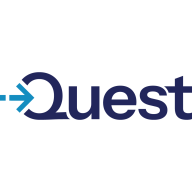

Teradata and Toad Data Point are competing in the data management solutions market. Teradata edges ahead in scalability and high-performance analytics, while Toad Data Point stands out with its cost-effectiveness and extensive features.
Features: Teradata provides advanced data warehousing, machine learning capabilities, and robust analytics, handling large-scale data with efficiency. Toad Data Point offers potent data connectivity, transformation, and easy-to-use visualization tools, integrating smoothly with varied data environments.
Room for Improvement: Teradata could improve by simplifying its setup and enhancing support for smaller enterprises. There is opportunity to reduce its dependency on specialized IT resources. Toad Data Point may enhance its analytics capabilities for complex data operations and offer more advanced machine learning features while expanding its scalability options.
Ease of Deployment and Customer Service: Teradata requires comprehensive infrastructure setup, generally needing specialized IT resources, but it delivers strong enterprise support. Toad Data Point offers a more straightforward setup with rapid deployment and is noted for its responsive customer service.
Pricing and ROI: Teradata demands higher initial setup costs due to software and hardware requirements but offers high ROI for large enterprises with advanced analytics needs. Toad Data Point provides a cost-effective solution with lower upfront costs, offering substantial ROI for smaller companies aiming for robust data management without significant investment.
| Product | Market Share (%) |
|---|---|
| Teradata | 0.9% |
| Toad Data Point | 0.8% |
| Other | 98.3% |

| Company Size | Count |
|---|---|
| Small Business | 28 |
| Midsize Enterprise | 13 |
| Large Enterprise | 52 |
Teradata is a powerful tool for handling substantial data volumes with its parallel processing architecture, supporting both cloud and on-premise environments efficiently. It offers impressive capabilities for fast query processing, data integration, and real-time reporting, making it suitable for diverse industrial applications.
Known for its robust parallel processing capabilities, Teradata effectively manages large datasets and provides adaptable deployment across cloud and on-premise setups. It enhances performance and scalability with features like advanced query tuning, workload management, and strong security. Users appreciate its ease of use and automation features which support real-time data reporting. The optimizer and intelligent partitioning help improve query speed and efficiency, while multi-temperature data management optimizes data handling.
What are the key features of Teradata?
What benefits and ROI do users look for?
In the finance, retail, and government sectors, Teradata is employed for data warehousing, business intelligence, and analytical processing. It handles vast datasets for activities like customer behavior modeling and enterprise data integration. Supporting efficient reporting and analytics, Teradata enhances data storage and processing, whether deployed on-premise or on cloud platforms.
We monitor all Data Integration reviews to prevent fraudulent reviews and keep review quality high. We do not post reviews by company employees or direct competitors. We validate each review for authenticity via cross-reference with LinkedIn, and personal follow-up with the reviewer when necessary.